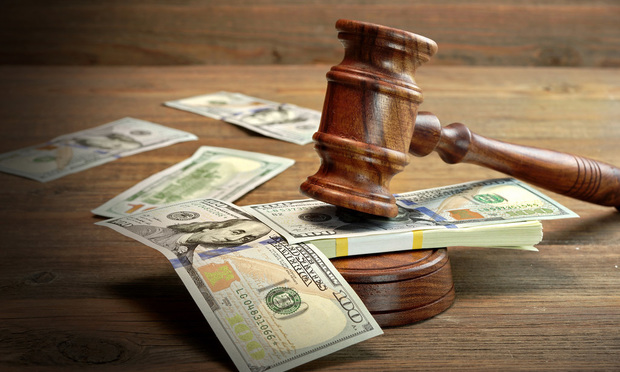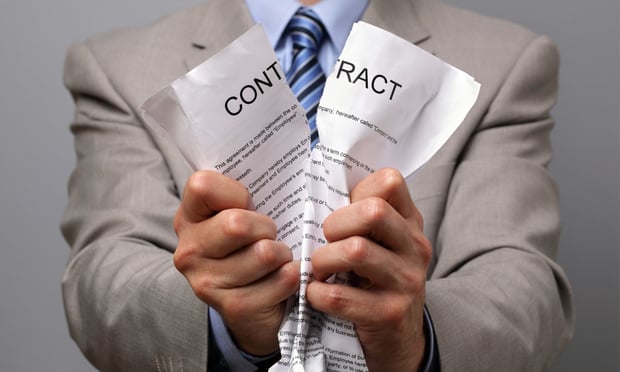British Petroleum's $20 billion fund to compensate Gulf oil disaster victims will pay quickly, eliminate payouts of settlement dollars to trial lawyers, and allow for BP's continued operations, an insurance industry expert said, noting BP is "worth a lot more alive than it is dead."
Robert P. Hartwig, president of the Insurance Information Institute, also said the fund will have few implications on the insurance industry, as BP is self insured.
Mr. Hartwig's comments were made to NU Online News Service after BP agreed to set up the compensation fund Wednesday at the urging of President Obama.
Kenneth Feinberg, who was the special master of the federal compensation fund for 9/11 victims, will administer the fund.
Speaking to the motive behind the fund's creation, Mr. Hartwig said, "This is being done so that BP can continue to operate, because quite frankly, BP is worth a lot more alive than it is dead."
He pointed out that BP is "a company that historically has nearly minted money." Between the beginning of 2007 and the first quarter of this year, he said, "the company made $64 billion after profits. There's nothing wrong with that, but its insurance is its prodigious earnings capacity."
If BP were to go under and declare bankruptcy, Mr. Hartwig said, there would be "serious questions" about where the funds would come from to pay these losses.
If there were to be a bankruptcy, he said, "the decision would have to be made about who has primary claim on the assets--would bondholders have primary claim above plaintiffs in the Gulf? Possibly yes. You don't want a situation like that arising."
Mr. Feinberg's job, he said, isn't to spend a specific amount of money, but to compensate people for their true damages in an expeditious manner.
He observed that it took 20 years to settle all the Exxon Valdez litigation. "There is no interest in dragging this situation out on the part of anybody involved," Mr. Hartwig said.
As well as providing an expeditious and fair methodology for determining damages, he said a fund also would maximize the resources of those who are suffering, as opposed to paying trial lawyers.
He said, "A typical trial lawyer take in a mass tort is one-third. You can compensate a lot of people with that money."
Because people in the Gulf need money sooner rather than later, if they know there is a fair process for compensation, "rather than a quick, low-ball [settlement] offer" through litigation, he said, people are likely to choose the fair compensation through the fund.
As for insurance industry implications, Mr. Hartwig said on the surface, there wouldn't appear to be many because BP is self insured.
The money BP will use to build up its funds will come from earnings, not from insurance, he said.
Cash that would have gone to BP shareholders, Mr. Hartwig said, will go into the fund.
He also spoke to the differences between the BP fund and the 9/11 Victim Compensation Fund. He said the 9/11 fund "was not a pot of money deposited by a corporation."
In that case, Mr. Hartwig said, Mr. Feinberg was put in charge of devising a means where the families of people killed in the terror attacks could be fairly and quickly compensated for their loss.
Ultimately, he said, those funds came from the federal government, but there was not a fixed dollar-amount set aside. Mr. Feinberg's challenge at that time, he said, was to develop a fair process of distributing the funds.
In the case of the BP fund, Mr. Hartwig observed, there will be a "pot of money" coming from BP to be deposited over the course of a few years.
Also unlike 9/11, he said, "Here you have a continuum of injuries," from severe damage of shrimp grounds and oyster beds to empty hotels because of fear of oil on the beach--even if there is none.
"Where do you draw the line?" he asked. "At some point a line will have to be drawn. These are difficult decisions, but along the lines of those Mr. Feinberg is familiar with making."
Mr. Hartwig said it may take Mr. Feinberg a few months to devise a formula to fairly compensate the many different types of parties that have been damaged.
Want to continue reading?
Become a Free PropertyCasualty360 Digital Reader
Your access to unlimited PropertyCasualty360 content isn’t changing.
Once you are an ALM digital member, you’ll receive:
- Breaking insurance news and analysis, on-site and via our newsletters and custom alerts
- Weekly Insurance Speak podcast featuring exclusive interviews with industry leaders
- Educational webcasts, white papers, and ebooks from industry thought leaders
- Critical converage of the employee benefits and financial advisory markets on our other ALM sites, BenefitsPRO and ThinkAdvisor
Already have an account? Sign In Now
© 2025 ALM Global, LLC, All Rights Reserved. Request academic re-use from www.copyright.com. All other uses, submit a request to [email protected]. For more information visit Asset & Logo Licensing.








